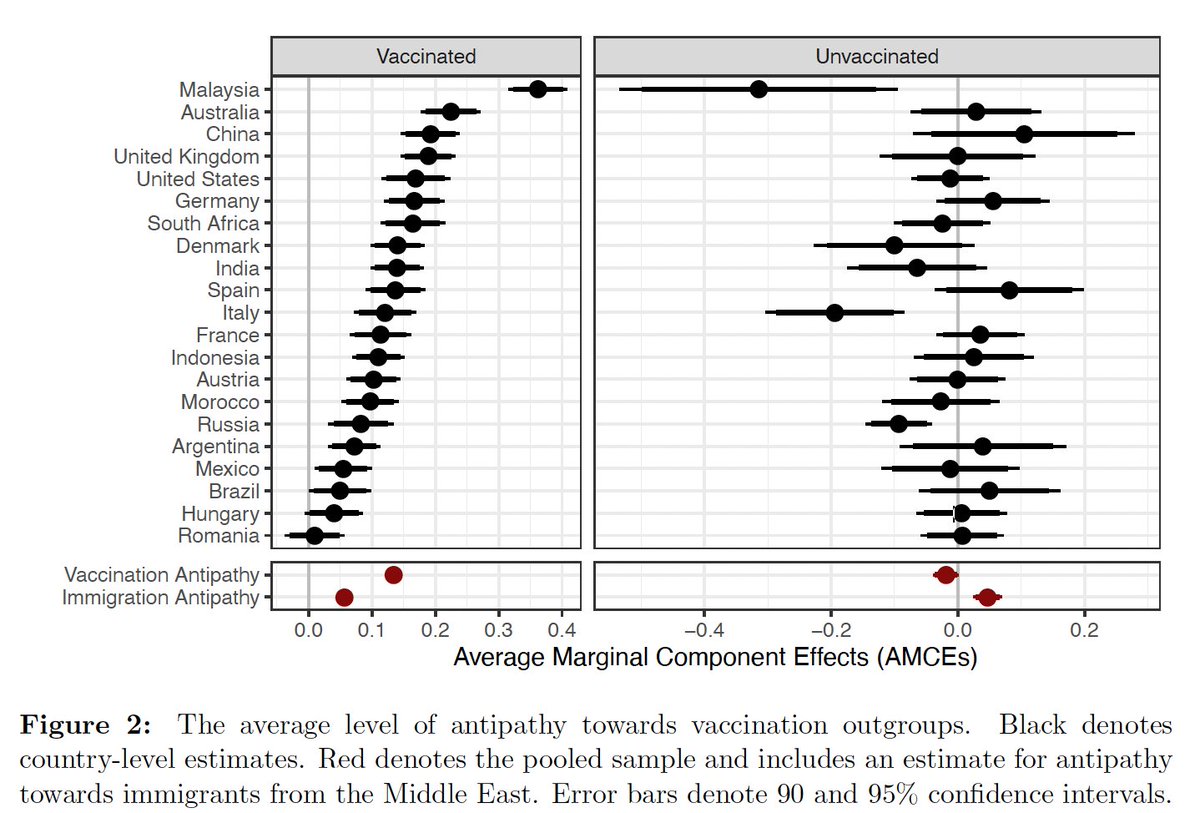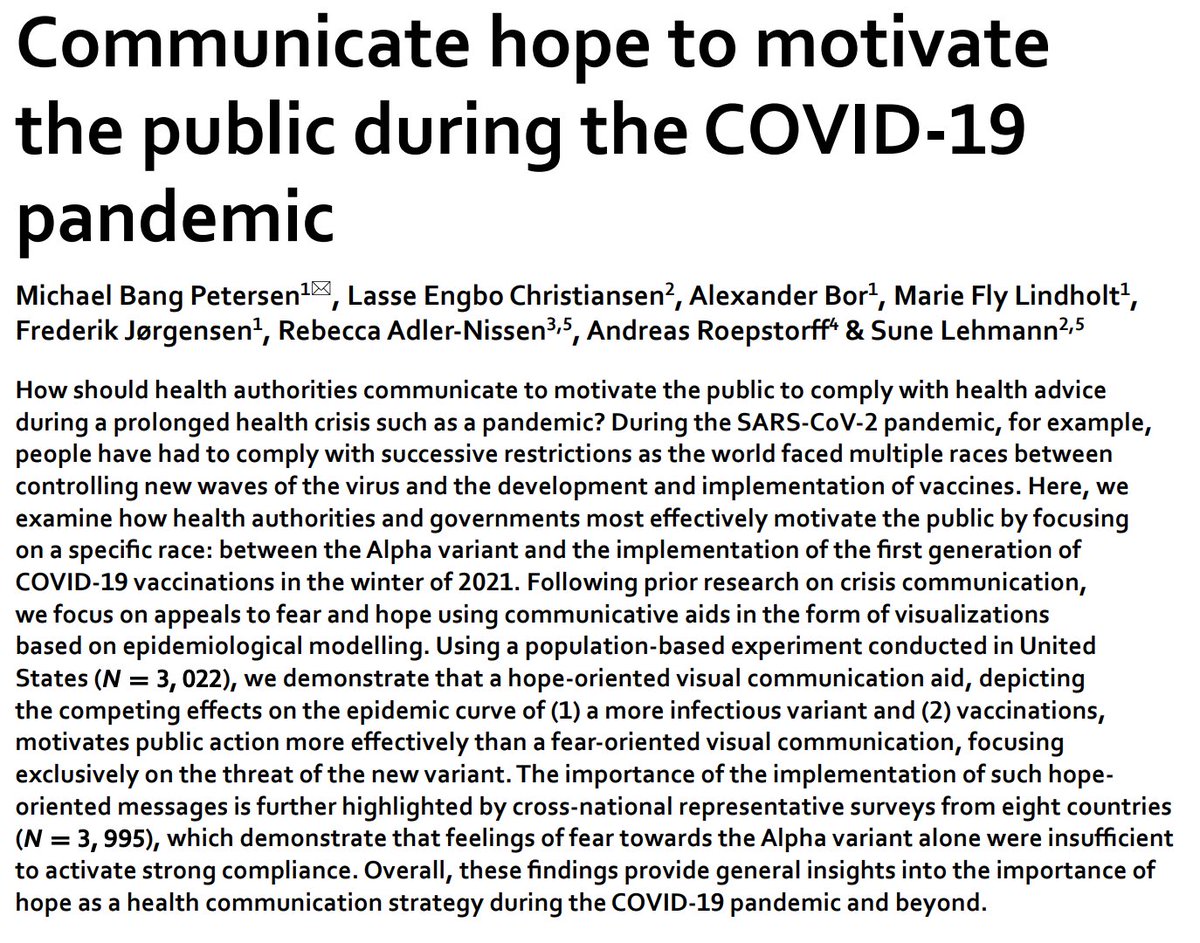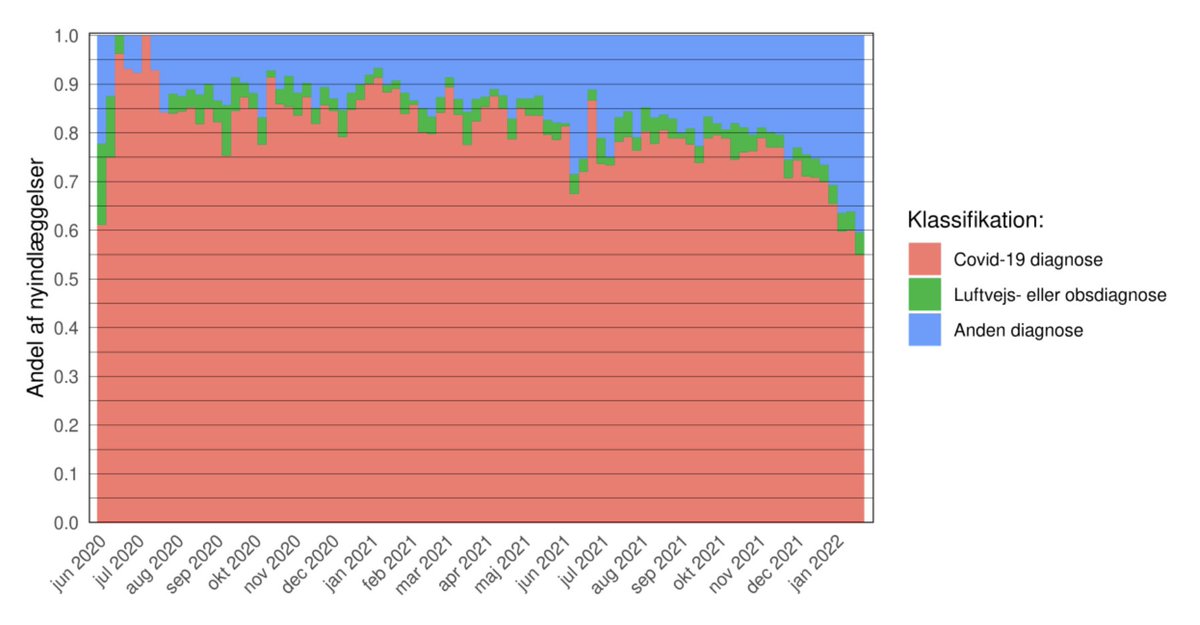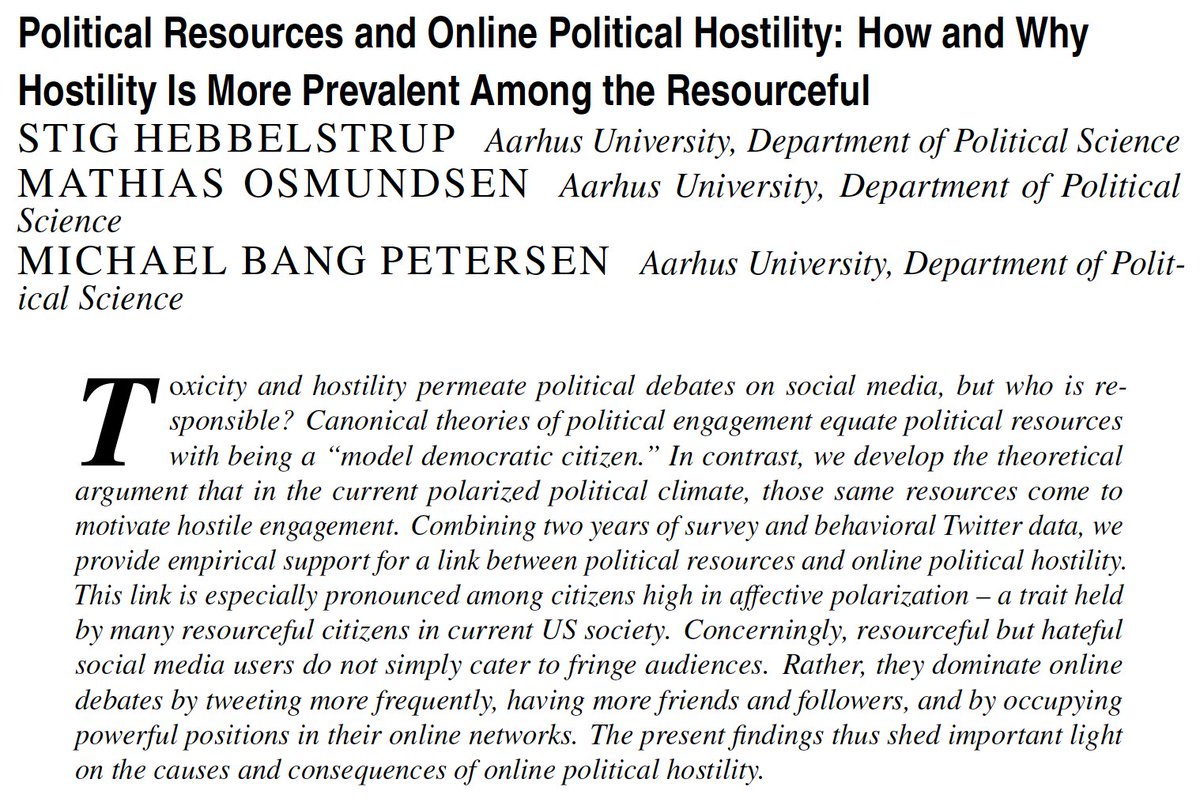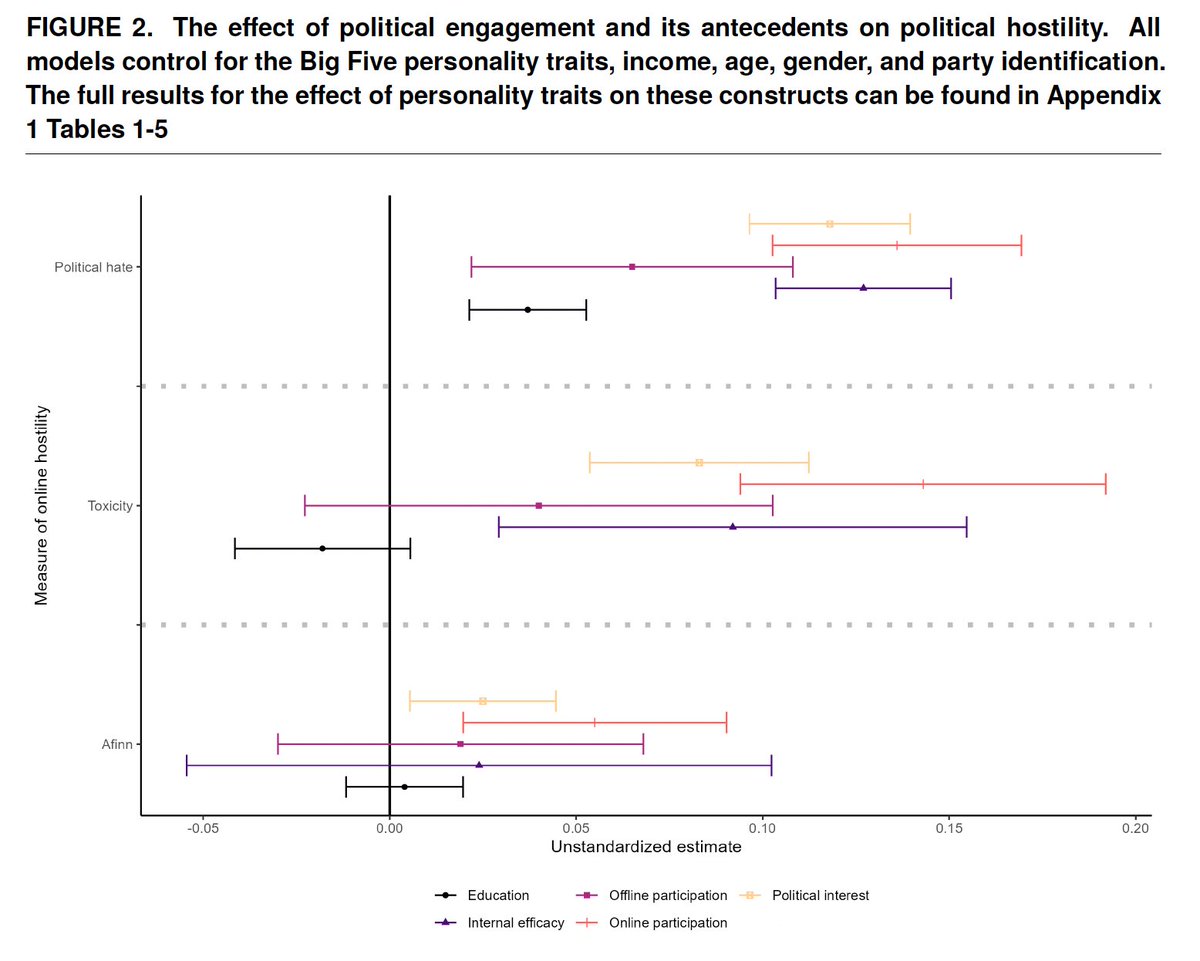
Et markant nybrud er, at den demokratiske samtale flytter fra forsamlingshuset til sociale medier.
Vi mangler viden & data. Derfor præges debatten ofte af myter fx om ekkokamre.
Men vi skal ud af ekkokamret om, ja, ekkokamre.
🧵 om de store spørgmål & forskningens svar. (1/15)
Vi mangler viden & data. Derfor præges debatten ofte af myter fx om ekkokamre.
Men vi skal ud af ekkokamret om, ja, ekkokamre.
🧵 om de store spørgmål & forskningens svar. (1/15)
Når man skal forstå et fænomen på sociale medier, fx ekkokamre, misinformation eller had, bør man altid stille 3 spørgsmål:
1) Hvor udbredt er X?
2) Hvad er årsagerne til X?
3) Hvad er effekterne af X?
Hvad siger forskningen om de 3 spørgsmål ift. ekkokamre? (2/15)
1) Hvor udbredt er X?
2) Hvad er årsagerne til X?
3) Hvad er effekterne af X?
Hvad siger forskningen om de 3 spørgsmål ift. ekkokamre? (2/15)
Et første skridt er at erkende, at forskningen om sociale medier er i sin vorden. Mange antagelser har vist sig forkerte. Og et enkelt studie giver sjældent sandheden.
Man må basere sig på opdaterede reviews fra internationalt førende forskere. (3/15)
Man må basere sig på opdaterede reviews fra internationalt førende forskere. (3/15)
Tråden baseres på 4 reviews fra de bedste forskere i verden:
#1 @andyguess et al (2018): researchgate.net/profile/Benjam…
#2 @p_barbera (2020): cambridge.org/core/books/soc…
#3 @STWorg et al (2021): osf.io/preprints/soca…
#4 @rasmus_kleis et al (2022): reutersinstitute.politics.ox.ac.uk/echo-chambers-…
(4/15)
#1 @andyguess et al (2018): researchgate.net/profile/Benjam…
#2 @p_barbera (2020): cambridge.org/core/books/soc…
#3 @STWorg et al (2021): osf.io/preprints/soca…
#4 @rasmus_kleis et al (2022): reutersinstitute.politics.ox.ac.uk/echo-chambers-…
(4/15)
1) Hvor udbredte er ekkokamre?
Ekkokamre findes i ekstreme miljøer, men de er ikke udbredte.
Alle reviews slår fast, at ekkokamre i form af en ensidig eksponering for nyheder, der passer til ens overbevisning, fylder mindre end antaget.
Her fra review #4.👇
(5/15)
Ekkokamre findes i ekstreme miljøer, men de er ikke udbredte.
Alle reviews slår fast, at ekkokamre i form af en ensidig eksponering for nyheder, der passer til ens overbevisning, fylder mindre end antaget.
Her fra review #4.👇
(5/15)

Review #3 understreger, at der er "homophilly" i folks sociale medie netværk. 👇Venstreorienterede er mere tilbøjelige til at følge venstreorientede.
Men som påpeget i selvsamme review samt review #2, så er spørgsmålet om, der er mere "homophilly" online end offline? (6/15)
Men som påpeget i selvsamme review samt review #2, så er spørgsmålet om, der er mere "homophilly" online end offline? (6/15)

Det leder til spørgsmål 2: Hvad er årsagerne til ekkokamre?
Begreberne om "filterbobler" og "ekkokamre" adskiller sig ved årsagen. "Filterbobler" er algoritme-drevne ekkokamre, mens begrebet om "ekkokamre" holder årsagen åben. (7/15)
Begreberne om "filterbobler" og "ekkokamre" adskiller sig ved årsagen. "Filterbobler" er algoritme-drevne ekkokamre, mens begrebet om "ekkokamre" holder årsagen åben. (7/15)
Review #4 (jf. 👆) afviser "filterbobbel"-tesen kategorisk ift. nyheder. Det betyder ikke, at algoritmer ikke kan påvirke strukturen i online netværk. MEN: "homophily" afspejler sig i alle interaktioner vi har 👇(annualreviews.org/doi/abs/10.114…). Selv-selektion er nulhypotesen. (8/15) 

Review #2 argumenterer faktisk for, at "homophily" må forventes at være *mindre* online end offline. 👇 (9/15) 
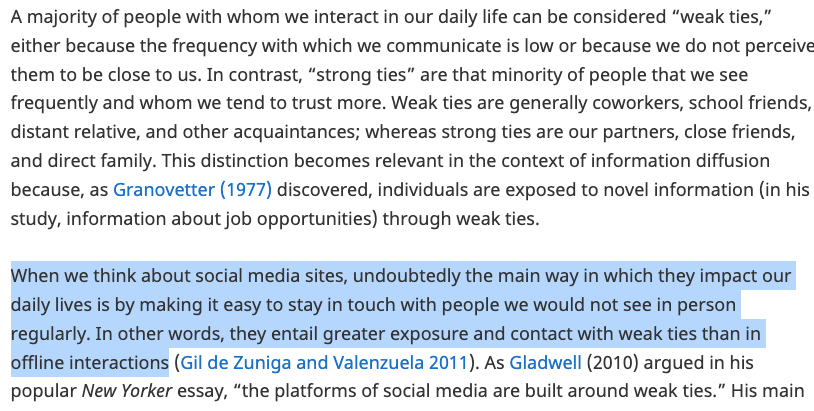
Men selvom ekkokamre er mindre udbredte & mindre algoritmer-drevet kan de godt være problematisk. Derfor spørgsmål 3: Hvad er effekten?
Forskning viser, at debat i lukkede grupper af ligesindede kan skabe polarisering. Ekstremisternes ekkokamre *er* uhensigtsmæssige. (10/15)
Forskning viser, at debat i lukkede grupper af ligesindede kan skabe polarisering. Ekstremisternes ekkokamre *er* uhensigtsmæssige. (10/15)
Men forskningen tyder også på, at nogle af udfordringerne med had og polarisering på sociale medier hænger sammen med *fraværet* af ekkokamre.
Studierne i review #2, der viser, at sociale medier polariserer, fokuserer netop på eksponeringen af modsatte synspunkter. 👇(11/15)
Studierne i review #2, der viser, at sociale medier polariserer, fokuserer netop på eksponeringen af modsatte synspunkter. 👇(11/15)
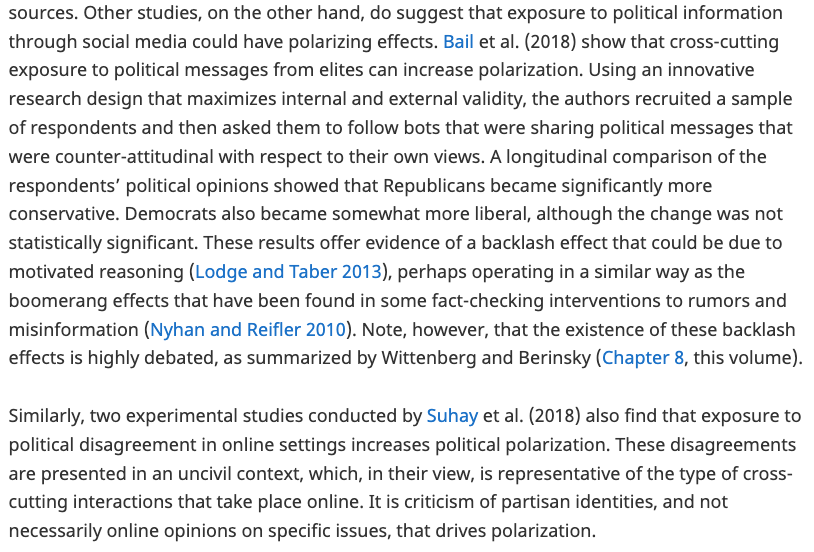
Det er konsistent med forskning fra mit eget @ROPHproject, som viser, at folk i højere grad oplever had fra fremmede online end offline (cambridge.org/core/journals/…) & at hadefulde individer indtager mere centrale positioner i online netværk (psyarxiv.com/tp93r/) (12/15).
Hvis ekkokamrerne i mindre grad er udbredte på sociale medier end mange tror, hvorfor er der så stadig et "ekkokammer om ekkokamre"?
Review #1 giver 3 grunde. 👇 (13/15)


Review #1 giver 3 grunde. 👇 (13/15)
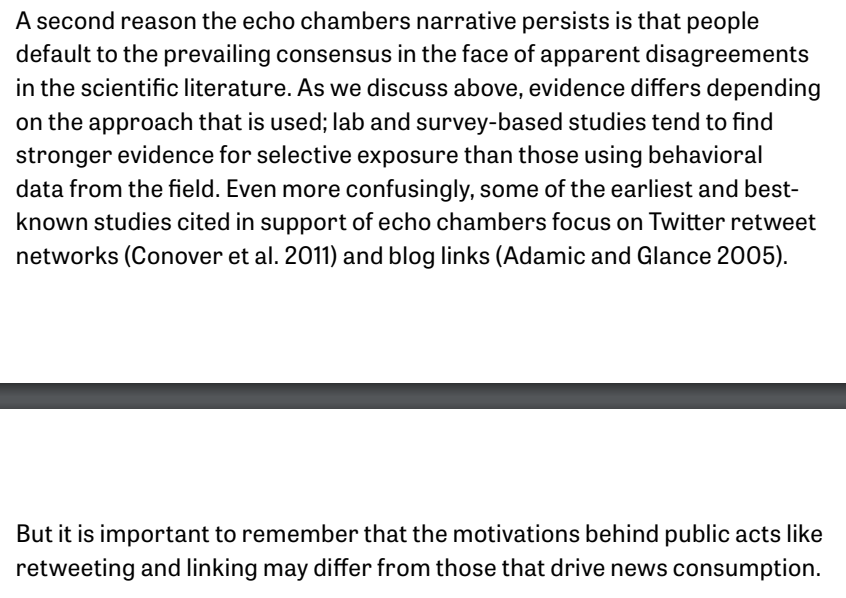
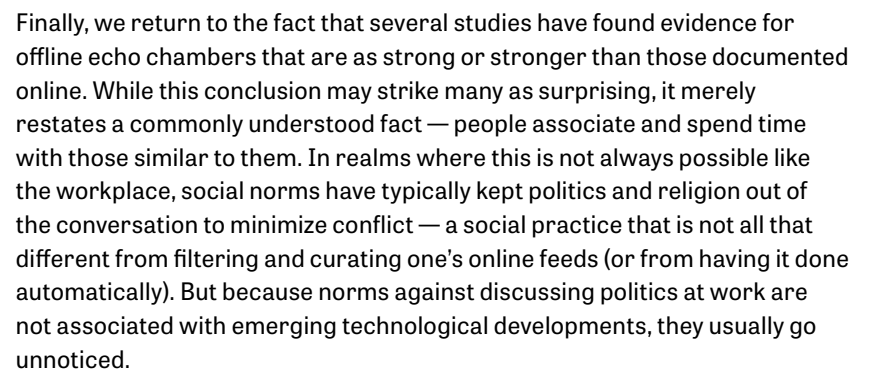
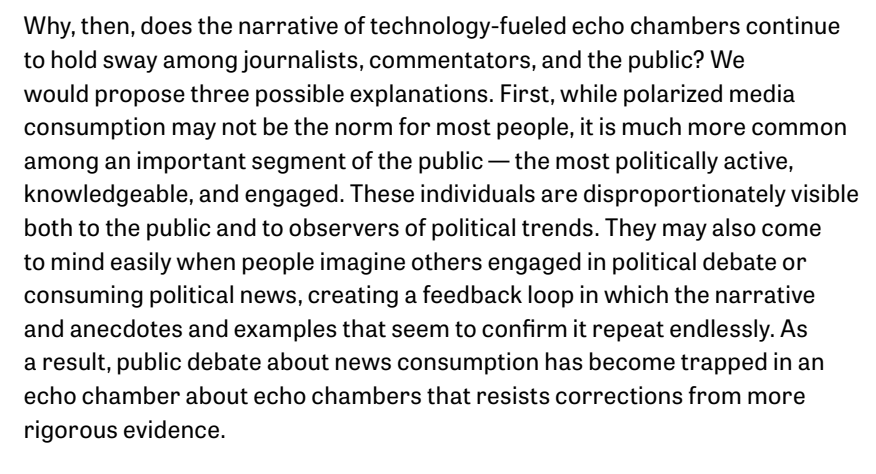
Der mangler stadig masser af viden. Den viden hindres af lukkede platforme, data & algoritmer. Og der er ingen tvivl om, at vi særligt mangler viden om danske forhold. Forskningen er stadig i sin vorden. Netop derfor skal man passe på med forsimplede forståelser. (14/15)
De sociale medier er formentlig de mest komplicerede sociale økosystemer som findes. De kan ikke blive reguleret hensigtsmæssigt uden opdateret viden & uden åbne data. Det vil være som at sætte en blind kioskejer til at regulere det finansielle system. (15/15)
• • •
Missing some Tweet in this thread? You can try to
force a refresh


